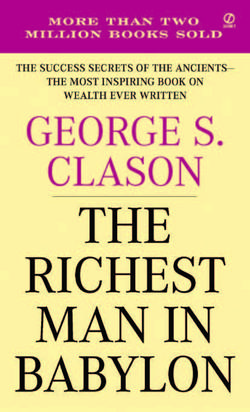Reading “The Richest Man in Babylon” by George S. Clason is a surefire way to place yourself on the path to great wealth…well, at least it would’ve been if you had lived during Babylonian times.
Clason’s book, which is just under 200 pages, seeks to teach proper money management through financial advice. The reader is taken through fictional scenarios set in ancient Babylon, once the richest city in the world.
In each chapter, Clason breaks down Babylon’s citizens into those who are financially clueless and those richer than the gods who counsel the average people.
The prosperous Babylonians teach many lessons to their fellow citizens who, in modern terms, live paycheck-to-paycheck. The lessons taught include saving 10 percent of all income, using the other 90 percent to pay for all expenditures, investing to make savings multiply, seeking monetary advice from experts in their respective fields (for instance, don’t ask a farmer about the value of a diamond), and increasing earning potential by acquiring all of the skills in one’s area of expertise.
Other lessons are more abstract in nature, such as the realization that good luck is actually the seizing of opportunity when it presents itself. The goddess of good luck favors men of action, according to Clason.
The structure of Clason’s book is extremely easy to follow. Just place yourself in the shoes of those being lectured by the affluent and listen intently.
However, the lessons taught imply that the book was created for simpleminded individuals who never heard of saving, a strategy that Clason’s moneywise characters reiterate in multiple chapters.
The repetitiveness does get irritating, as one might find themselves reading through a different tale only to receive the same message.
Having sold more than two million copies, “The Richest Man in Babylon” claims that it is “the most inspiring book on wealth ever written.”
The redundant message of saving may be of value to the young child earning their first allowance, or an older college student who still hasn’t learned how to separate needs from desires.
However, it is difficult to imagine that the average, working class American doesn’t already know a savings account is beneficial. In a world where many companies already offer money smart options, such as 401Ks, this book seems to present more common sense than it does inspiration.
To be fair, Clason did write the book in 1926, just three years prior to the great stock market crash of 1929 that ushered in the Great Depression for 12 years.
Certainly, the advice of his imaginary Babylonian characters could have been of great use then, as people never used to think of simple measures, such as insuring what little savings they had. When the banks failed in 1929, an individual’s money disappeared with them. This led to the creation of the Federal Deposit Insurance Corporation (FDIC) in 1933, which today insures a customer’s money for up to $250,000 per insured bank.
Almost two decades before the FDIC’s birth, Clason foresaw the value of such a system and advised his readers to secure their money behind the “impregnable walls of insurance, savings accounts, and dependable investments.”
To the 21st century reader, this is an easily recognizable bright spot in Clason’s book, as his foresight is impressive. Unfortunately, the rest of his book’s advice is vague.
One of the primary lessons that Clason seeks to teach through the ancient Babylonians is the importance of creating future income by investing one’s savings. However, the reader is left hanging as to what exactly constitutes a profitable investment.
Maybe you should buy some stocks, but, they fluctuate up and down in value, and surely there must be a safer place to augment one’s savings.
A safer option might be a bank’s certificate of deposit (CD), a special type of deposit account that offers a higher rate of interest than a regular savings account. Still, a CD’s interest rates vary and aren’t always all that profitable, especially during recession times such as the current one. Is there a quicker and equally secure method by which to increase one’s earnings? Don’t ask Clason’s Babylonians, they won’t help.
Clason’s book also offers little help to college students graduating with debt due to college loans. Saving 10 percent from every paycheck may not be feasible, depending on a college graduate’s salary, the amount of money they owe, and the time they need to repay it.
Clason does mention to avoid debt, but, because of when he wrote “The Richest Man in Babylon,” fails to consider the modern day importance of an expensive higher education.
If there is one overarching lesson to take away from “The Richest Man in Babylon,” it’s that there is no such thing as guaranteed wealth.
If Clason’s book truly was a road map to riches, as many have come to consider the 85yearold work, then poverty would have been eradicated a long time ago.
Perhaps the current recession that’s affecting the world is the best reminder that accumulating money and making smart investments is an everlasting problem. Clason inadvertently reminds the reader of this by showing that the Babylonians struggled financially 1,400 years ago.
While the monetary advice of the Babylonians is ancient, financial management has proven itself to be an ageless problem.
PHOTO COURTESY of booksellers.penguin.com




